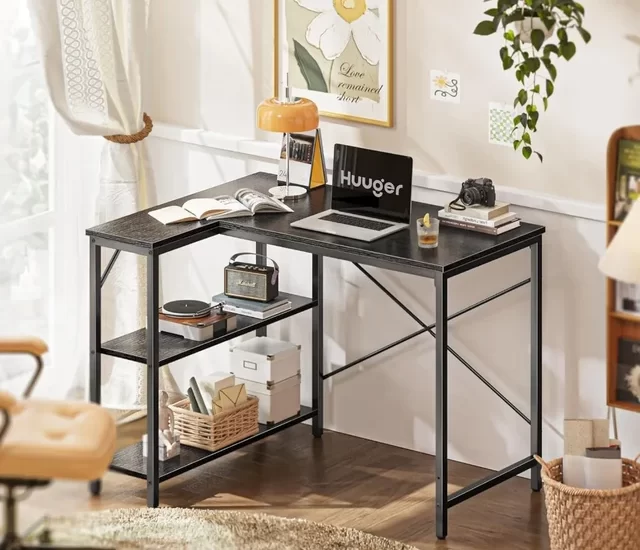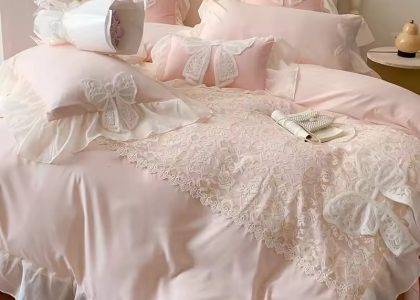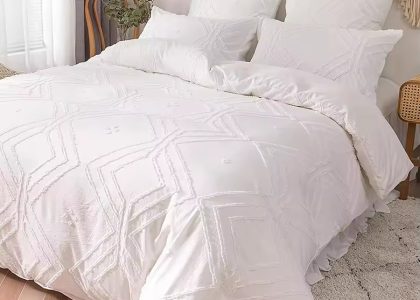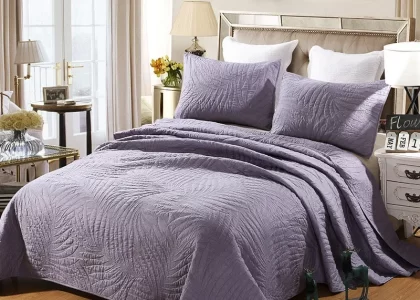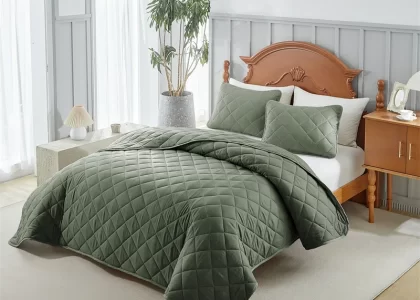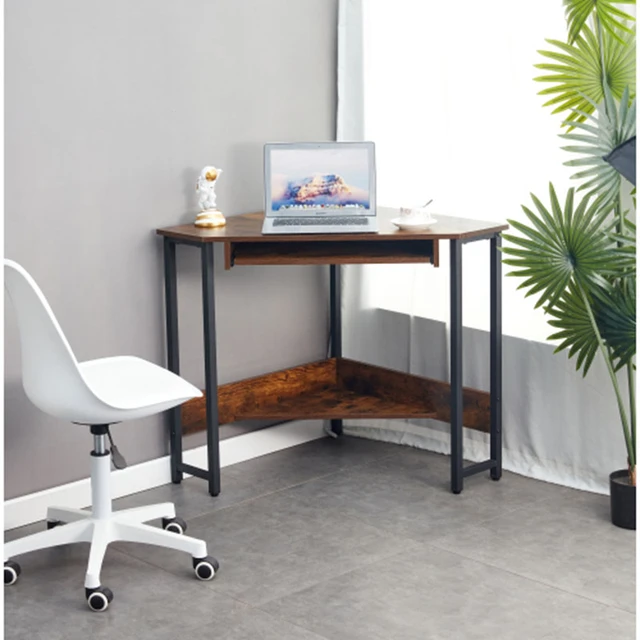 Introduction:
Introduction:
A small corner desk provides an efficient and space-saving solution for creating a functional workspace in compact areas. Whether for a home office, a student’s study area, or a professional workspace, small corner desks offer versatility and convenience. In this comprehensive guide, we will explore the benefits, features, materials, and considerations when choosing a small corner desk. By understanding these aspects, you can optimize your space and productivity while maintaining your style and organization.
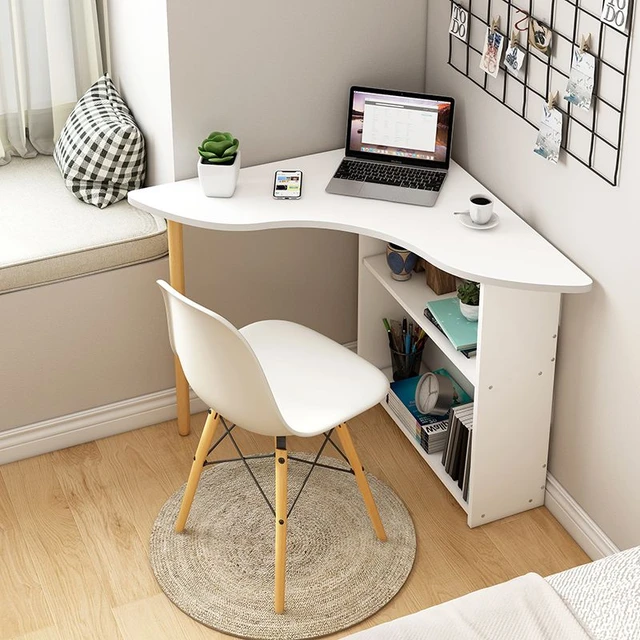 Benefits of Small Corner Desks
Benefits of Small Corner Desks
Space Optimization:
Small corner desks are designed to fit snugly in corners, making efficient use of often-underutilized space.
They maximize floor space while providing ample work surface and storage options.
Versatility:
Small corner desks can be versatile in design, offering options such as adjustable heights, interchangeable configurations, or built-in storage solutions.
This adaptability allows customization to suit specific needs and preferences.
Improved Productivity:
Having a dedicated workspace with a small corner desk helps create a focused environment, aiding in productivity and concentration.
It separates work from other areas in the room, establishing a mental boundary for effective work habits.
Features and Materials of Small Corner Desks
Compact Design:
Small corner desks are designed to fit into tight spaces without sacrificing functionality.
They often have streamlined designs and minimalistic aesthetics to create a visually pleasing work area.
Storage Solutions:
Many small corner desks come with built-in storage features such as drawers, shelves, or compartments.
These storage options help keep the workspace organized and free from clutter.
Materials:
Small corner desks are available in a variety of materials, including wood, metal, or a combination of both.
Each material offers different aesthetics, durability, and maintenance requirements.
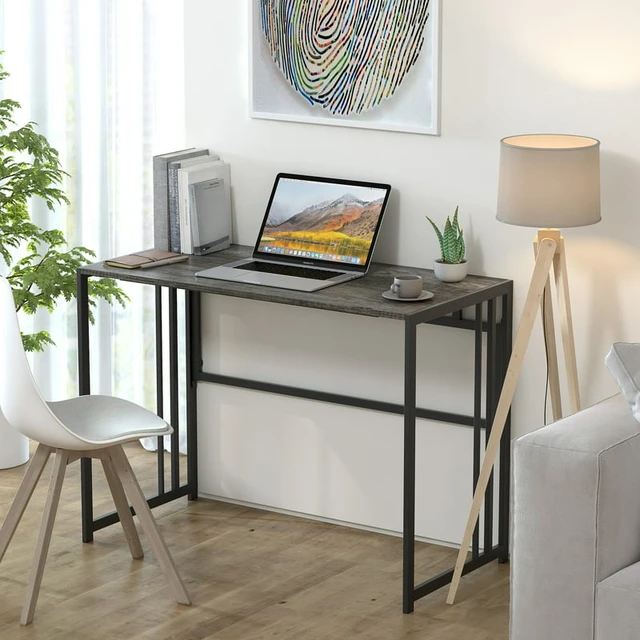 Considerations when Choosing a Small Corner Desk
Considerations when Choosing a Small Corner Desk
Size and Dimensions:
Measure the available corner space to ensure the desk fits snugly without obstructing movement or access.
Consider the height, width, and depth in relation to your ergonomic needs and the items you plan to place on or under the desk.
Style and Aesthetics:
Small corner desks come in various styles and finishes, allowing you to match the desk with your existing decor.
Consider factors such as color, design details, and overall aesthetic appeal to create a harmonious workspace.
Functionality:
Determine the specific functionalities you require, such as additional storage, wire management options, or adjustable features.
Evaluate the desk’s configuration, surface area, and storage capacity to ensure it meets your specific needs.
Maintenance and Care of Small Corner Desks
Cleaning:
Regularly dust and clean the surface and storage compartments of the small corner desk to maintain its appearance.
Follow the manufacturer’s instructions for specific cleaning recommendations and materials.
Organization:
Establish an organization system that works for you, utilizing the storage compartments of the small corner desk effectively.
Keep the desk clutter-free and use organizers, such as desk trays or cable management systems, to maintain a neat and functional workspace.
Durability and Maintenance:
Consider the durability and maintenance requirements of the desk material chosen.
Wood may require periodic polishing or conditioning, while metal may need occasional cleaning and rust prevention measures.
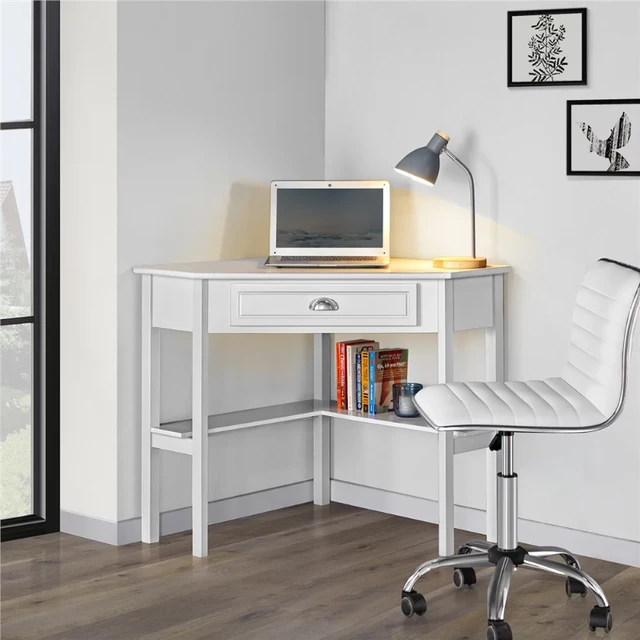 A small corner desk, a foldable table, and a laptop stand for bed:
A small corner desk, a foldable table, and a laptop stand for bed:
Here’s a comparison of a small corner desk, a foldable table, and a laptop stand for bed, along with their differences:
Small Corner Desk:
Design: A small corner desk is a stationary desk that fits into a corner of a room, maximizing space utilization.
Size and Workspace: It provides a dedicated and fixed workspace for tasks such as studying, working, or using a computer. The size of the desk can vary, but it generally offers a larger surface area for multiple items, such as a computer, books, and office supplies.
Ergonomics: A small corner desk can be designed with ergonomic features such as adjustable height, built-in storage, and cable management to promote comfort and organization.
Foldable Table:
Design: A foldable table is designed to be collapsible and portable, providing convenience for various uses and easy storage when not in use.
Portability: It can be easily folded and carried, making it suitable for outdoor activities, picnics, camping, or as an additional workspace in temporary environments.
Size and Workspace: Foldable tables come in various sizes and shapes, providing a modest-sized workspace for activities such as writing, dining, or crafting, but may not offer as much space as a large desk.
Sturdiness: Foldable tables are often made with lightweight materials and may not offer the same stability and durability as a dedicated desk.
Laptop Stand for Bed:
Design: A laptop stand for bed is designed to provide a comfortable and ergonomic setup for operating a laptop or tablet while in bed or on a couch.
Portability: It is typically lightweight and portable, making it easy to move around the house.
Adjustable and Flexible: Laptop stands for bed often have adjustable height and tilt angles to bring the screen to eye level and provide a comfortable typing position.
Size and Workspace: The size of a laptop stand for bed is designed to accommodate a laptop or tablet, providing a limited workspace compared to a desk. It may have additional features like built-in cooling fans or mouse pads.
The main differences lie in their design, portability, size, and intended use. A small corner desk offers a fixed and spacious workspace but is less portable, while a foldable table provides portability and versatility but with limited work area. A laptop stand for bed prioritizes comfort and ergonomics for laptop or tablet use in bed but offers a smaller workspace.
Consider your specific needs for space, portability, and intended usage to determine which option would best suit your requirements.
 Conclusion:
Conclusion:
A small corner desk offers an efficient and space-saving solution for creating a functional and organized workspace. With their ability to optimize space, provide versatility, and enhance productivity, small corner desks are popular choices for home offices, student areas, or professional workspaces. By considering factors such as size, materials, style, and functionality, you can select a small corner desk that meets your specific needs and complements your existing decor. With proper maintenance and organization, a small corner desk can serve as an ideal work area, allowing you to maximize your productivity and create a harmonious and efficient workspace.

